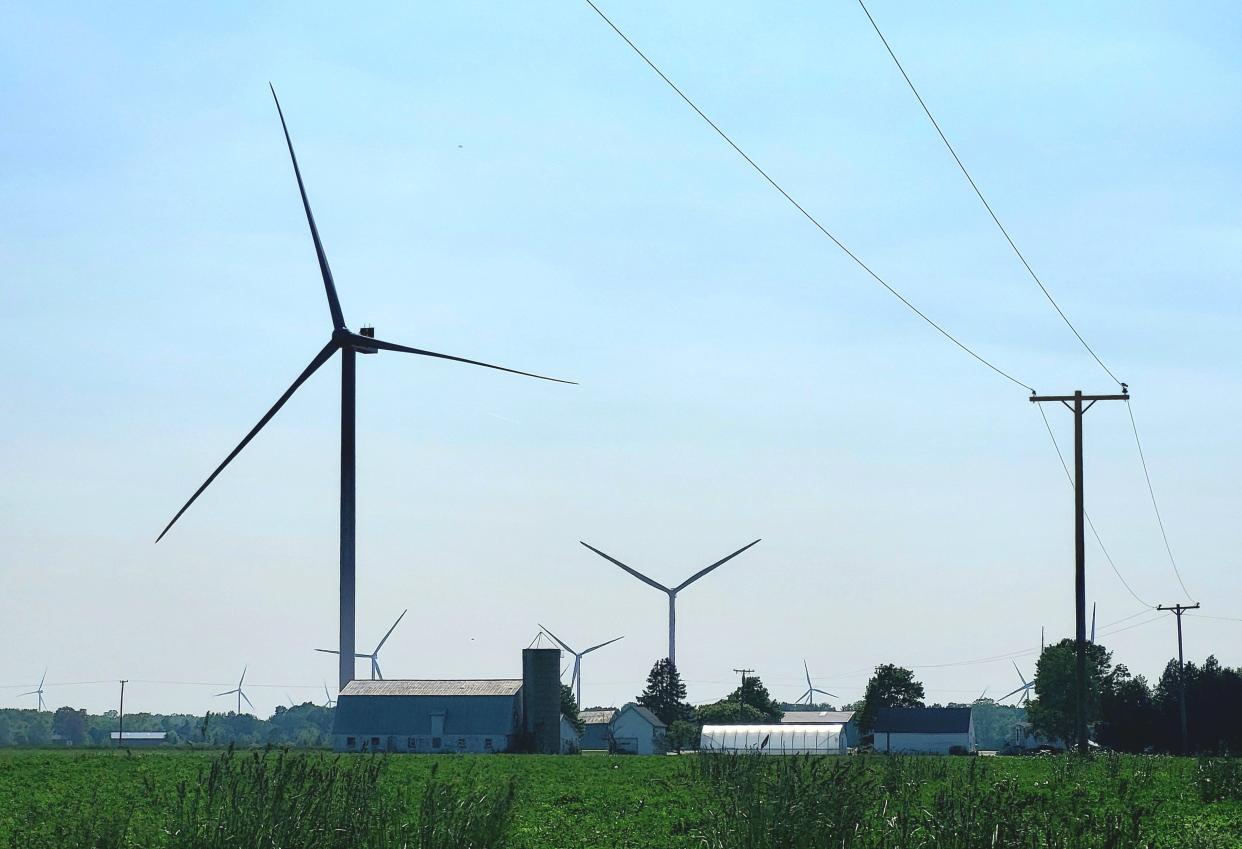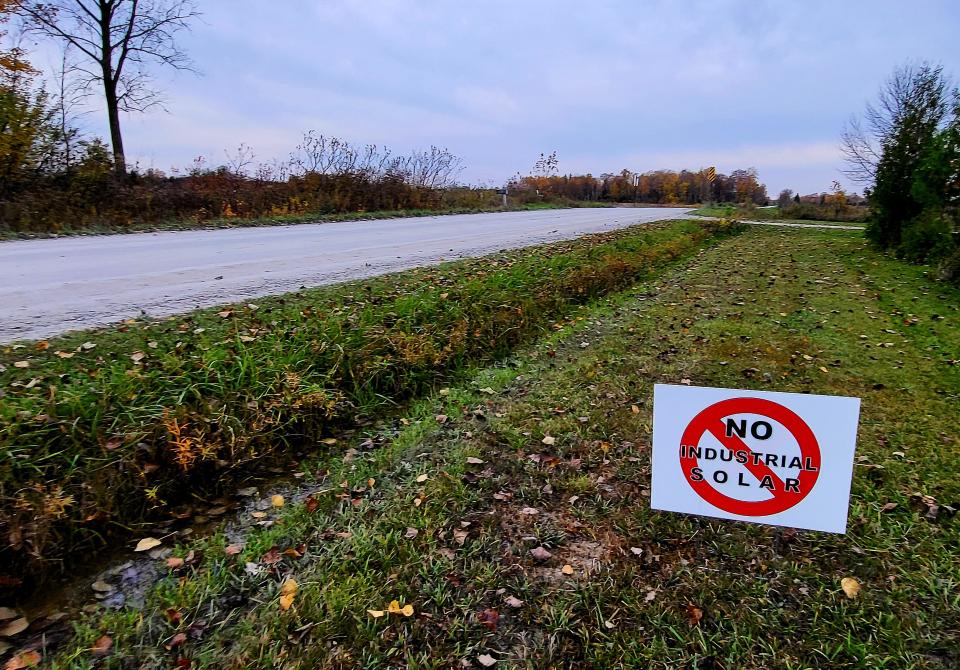Wind, solar projects may 'see a path cleared' under state measure despite local opposition

- Oops!Something went wrong.Please try again later.
Despite the chatter that proposed wind and solar developments have caused among Michigan communities in recent months, some local leaders were often mum late last week about the impacts of legislation headed for Gov. Gretchen Whitmer that’d stymie local control of such projects.
State lawmakers pushed through bills late Wednesday aimed at helping Michigan meet renewable energy standards. But the push-and-pull of measures approved along party lines may also be more symbolic of hyper-local concerns about zoning, master plans, property rights, and quality of life.
Originally House Bills 5120 and 5121, the measures put the final word for approving renewable energy projects before the three-member Michigan Public Service Commission, leaving only a few months for local units to approve or deny a proposal.
Often “a moving target” in the legislative process — language both utilized by state Sen. Dan Lauwers, R-Brockway Township, and attorney Gary Fletcher, whose firm represents multiple St. Clair County local governments — several officials have indicated they wanted to wait until Whitmer signed the measures, as she’s expected to, before speculating how it could affect current efforts to draft ordinances or zoning applications from major developers.
One of the biggest examples may be in Clyde Township and Fort Gratiot, where a Chicago-based developer proposed a massive solar installment covering hundreds of acres. A day after Fort Gratiot planning commissioners rejected a request for the $140 million project last week, the project manager said they’d no comment on their next steps. Meanwhile, that developer, Ranger Power, was still a listed discussion item for Clyde’s planning commission meeting on Tuesday.
However, regardless of how those local authorities rule, Ranger Power may be able to press on.
“We’ll probably see a path cleared for a lot of these projects,” Lauwers said Friday — his concerns against the legislation echoing some of those from local constituents in the Thumb.
“… Locals are allowed to do anything they want as long as it’s not more restrictive than what was passed in the statute, which is actually less restrictive than what Fremont had in their ordinances, and (where) all those individuals were recalled.”

Multiple board officials in Sanilac County’s Fremont and Speaker townships, where a large-scale wind turbine project has been the point of ire for residents for more than a year, were successfully recalled in the Nov. 7 election.
Back in Fort Gratiot, its ordinance addressing solar was OK’d by the township within the last year.
Fletcher said, “Fort Gratiot virtually in every way was tougher” on rules siting those proposals. And last Wednesday, before Fort Gratiot planning commissioners voted to deny a special use permit for Ranger Power, Clerk Bob Buechler, who chairs the commission, broke down the wider difference between the their rules and the state’s.
“Our ordinance requires screening. The state statute is silent as to screening. Our ordinance requires a decibel level of 45 decibels. The state statute is at 55, so they allow more noise,” he said. “The decommissioning plan, our ordinance requires that the bond or surety for decommissioning be funded 100% at the time of construction. The state statute requires that the bond pays over 100% of the decommissioning after 10 years of the operation.
“So, the only thing that the state statute beats us on is the setback requirements for the panels. Our ordinance is at 100 feet from dwellings. The state statute is at 300 feet. But as part of our process tonight, we (could) include conditions that increase that setback, as well.”
In other communities, ordinances were still in the drafting process to address things like solar projects.
Currently, other areas like Wales Township have had a moratorium on renewable energy zoning rules for much of the last year.
St. Clair County Commissioner Dave Rushing, a former supervisor to the nearby Riley Township who currently vice chairs its planning commission, said they expected the 14-page measure to come back from the Metropolitan Planning Commission for approval.

“In Riley Township, we have designated 200 acres along I-69 for the initial solar,” he said. “Any solar that comes to Riley has to be there first because you cannot have restrictive zoning.”
Last week, Rushing and others who spoke before Fort Gratiot officials argued the Ranger Power proposal conflicted with the township’s master plan preserving areas as agricultural.
The county board member cited something similar in why he believed the state’s push to empower the MPSC was against the state’s constitution.
“Every municipality, the 1,240 townships, every city, every village, every county, are required to have a master plan,” he said Thursday. “By the state being able to take properties and do the zoning, take over local zoning, in my opinion, that makes every single master plan potentially null and void.”
Regardless of how people feel about renewable energy projects, it wasn’t clear what sort of legal challenges could be born from the state-local issue.
Either way, Lauwers added, “The state won’t run out of resources in a legal battle, and a township will.”
Contact Jackie Smith at (810) 989-6270 or jssmith@gannett.com.
This article originally appeared on Port Huron Times Herald: Wind, solar projects may 'see a path cleared' under state measure despite local opposition

